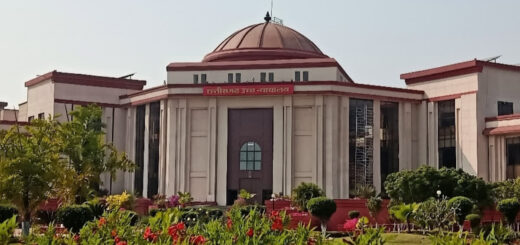The Supreme Court has released guidelines for granting remission to convicts. It has instructed states and union territories to create policies based on Section 473 BNSS.

The Supreme Court provided guidelines for granting remission to convicts. It instructed States and Union Territories without a remission policy under Section 432 of the CrPC or Section 473 of the BNSS to create one within two months. Justices Abhay S Oka and Ujjal Bhuyan stated that if a government has a policy for considering early release under these sections, it must review all eligible convicts for premature release without requiring a specific application from them or their families. This applies when the jail manual or other official instructions include such guidelines.
Senior Advocate Liz Mathew, with AOR Navneet R., contributed to the discussions on this matter. The judgment came from a Suo Motu Writ Petition where the Court looked into the remission policy for convicts. It examined the rules in Section 432 of the Code of Criminal Procedure, 1973 (CrPC), and Section 473 of the Bharatiya Nagarik Suraksha Sanhita, 2023 (BNSS), which relate to sentence remission. The Court emphasized that while the appropriate government holds the power to grant remission, it must do so in a way that respects the constitutional rights under Articles 14 and 21 of the Constitution of India.
The Court needed to decide if the right government could review a convict’s case for remission without a formal request from the convict. It referenced its earlier ruling in Mohinder Singh v. State of Punjab (2013), which stated that an application is necessary for permanent remission. The majority opinion in that case indicated that the power to grant remission cannot be used on its own. The Court noted that according to Sub-Section (2) of both Sections 432 and 473, an application must be submitted. Since the convict is in prison, a relative can submit this application on their behalf. The Bench emphasized that the authority under Section 432 of the CrPC should be used fairly and reasonably. It warned that without clear policies or regulations for using this power, there is a risk that authorities might not act fairly or rationally.
The Bench also looked into whether remission could be automatically revoked if the convict breaks the terms of their remission. It referred to its ruling in Mafabhai Motibhai Sagar v. State of Gujarat, which stated that conditions set when using the power under Section 432 or Section 473 must be reasonable. If the conditions are arbitrary, they could be invalidated for violating Article 14, and such arbitrary conditions might infringe on the convict’s rights under Article 21 of the Constitution.
When canceling a remission order, the government must provide brief reasons. This is important because it impacts the freedom given to convicts. Canceling a remission affects a convict’s right to liberty as stated in the Constitution. Thus, reasons must be included in the rules of Sub-Sections (2) of Section 432 of the CrPC and Section 473 of the BNSS. The convict should receive a notice explaining the cancellation grounds and have a chance to respond. Without this, the convict cannot defend themselves properly.
Additionally, the Court needed to decide if reasons must be recorded when rejecting convicts’ applications for permanent remission. The Bench stated that the power to grant early release should be used fairly. This decision influences the convict’s liberty protected under Article 21 of the Constitution. Therefore, the requirement to record reasons for both granting and denying permanent remission should be included in Section 432 of the CrPC and Section 473 of the BNSS. The principles of natural justice must also be considered in Section 432 of the CrPC.
The Court stated:
- “It is important to consider various factors before finalizing the terms and conditions;
- The conditions should help keep any criminal behavior of the convict under control and support their rehabilitation in society;
- The conditions must not be too harsh, preventing the convict from benefiting from the permanent remission order; and
- The conditions should be clear and achievable.”
The Bench also instructed, “We ask those States and Union Territories without a remission policy under Section 432 of the CrPC or Section 473 of the BNSS to create one within two months.” As a result, the Court ordered, “To prevent arbitrary use of power, all states lacking a detailed policy on this matter must develop one within two months. This can be a standalone policy or included in the prison manuals.”
Cause Title: In Re: Policy Strategy For Grant Of Bail (Neutral Citation: 2025 INSC 239)









